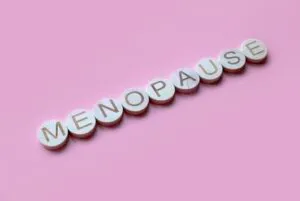 If you suffer from dry mouth, sensitive teeth and other dental problems, then you may attribute these conditions to aging, and you may be right. Adults over the age of 65 are more likely to experience a wide range of dental issues, from sensitivity to cavities. This is partly due to fluctuating hormones, partly from concurrent medical problems, like diabetes or heart disease, and partly from increased medications. Your teeth are not a renewable resource, but there are ways to protect them as you age so that you can enjoy a healthier, happier smile for years to come.
If you suffer from dry mouth, sensitive teeth and other dental problems, then you may attribute these conditions to aging, and you may be right. Adults over the age of 65 are more likely to experience a wide range of dental issues, from sensitivity to cavities. This is partly due to fluctuating hormones, partly from concurrent medical problems, like diabetes or heart disease, and partly from increased medications. Your teeth are not a renewable resource, but there are ways to protect them as you age so that you can enjoy a healthier, happier smile for years to come.
Routine Preventive Care
The best way to protect your teeth and gums is to take care of them before there’s a problem. Dental problems not only hurt your teeth and your overall health, but they’re also expensive. Total mouth reconstruction can cost at least $45,000, but even smaller procedures, such as oral surgery to remove decayed teeth, might cost a couple grand or more. Here are a few preventive measures that you can take at home to avoid costly issues:
- Brush after each meal or twice a day, and floss once a day. The best time to floss is at night after you’ve brushed your teeth.
- Avoid eating right before bed, or right before or after you brush your teeth. Allowing time between brushing and eating will boost the effectiveness of the cleaning.
- Include fluoridated tap water in your diet. Purified drinking water doesn’t have fluoride, and fluoridated water has been ranked as one of the top 10 public health achievements of the 21st century. If you can’t or don’t want to drink your local tap water, then use a toothpaste with fluoride as it prevents tooth decay.
The American Dental Association or ADA recommends twice-annual visits for preventive care. During a semi-annual checkup, your dentist or a hygienist will check and clean your teeth, go over your current and past medical history, and recommend follow-up care to improve your oral health. The Centers for Disease Control and Prevention found that just 62 percent of adults over 65 see a dentist for preventive care. Routine oral checkups can identify problems early, so don’t skip those visits to the dentist.
A Healthy, Nutritious Diet
Dental health affects your overall health and vice versa. What you eat impacts the chances of developing tooth decay and gingivitis, among other dental problems. You probably know that sugary foods and drinks can damage your teeth, but did you know that candy and soda aren’t the only tooth decay culprits? Avoid foods that contain:
- Added sugars
- Phosphoric or citrus acids, which wear down enamel
- Anything that dries out your mouth
Drying agents can include alcohol and medication. If your prescriptions are creating dry mouth problems, then talk to your doctor about options for protecting your teeth. To help offset the negative effects of certain foods, the ADA recommends drinking more water, eating sugary foods with meals, chewing sugarless gum between meals instead of snacking, and maintaining good oral hygiene.
Sources:
https://www.cdc.gov/nchs/fastats/dental.htm
https://www.yourdentistryguide.com/preventive-dentistry/
https://www.ada.org/en/member-center/oral-health-topics/aging-and-dental-health
https://www.urmc.rochester.edu/encyclopedia/content.aspx?ContentTypeID=1&ContentID=4062





